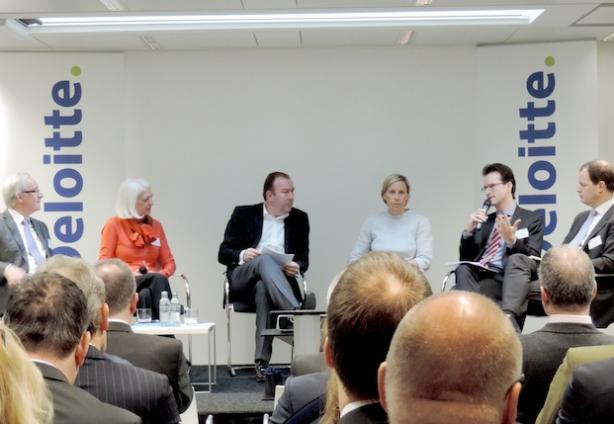Germany’s economic links to the Grand Duchy are hardly limited to the financial services sector, according to a report issued by consultancy Deloitte during its “German market in Luxembourg” conference this week.
Germany represented 22% of Luxembourg’s export market and was the source of 26% of its imports in 2012, the paper noted. Banking and investment funds remain important sectors. Out of the Grand Duchy’s 147 banks, 37 are German, while 15% of assets under management in Luxembourg investment funds hail from the Federal Republic, the second largest source after the US.
Yet the study, released on Tuesday, aimed to provide a more “holistic” overview of the key economic ties between the two countries, the firm’s Ruth Bültmann told Delano in an interview following the event.
“Everyone has the impression” that financial services overshadow the rest of Luxembourg’s economy, but in reality non-financial industries make up 76% of gross value creation, she said.
For example, “in the Greater Region, there are [several] automotive companies that need services and parts to build their cars, and a good part of these are developed in Luxembourg,” Tom Pfeiffer of Deloitte said during the interview.
The study also examined other sectors, such as life sciences and healthcare, noting that Germany’s prestigious Max Planck Institute opened a legal research centre in the autumn of 2012.
In the technology, media and telecommunications space, the report counted 18 fibre optic network routes between Luxembourg and Germany, Belgium, France, the Netherlands and the UK, a selling point for German digital firms.
Diversification and competitiveness
Bültmann said it is “important that Luxembourg pushes these new sectors” in order to diversify its economy and strengthen its competitiveness.
At the same, the “non flexibility” of the labour market, increased regulations and longer administrative delays are dampening prospects, Pfeiffer said on Thursday. “Luxembourg was always seen as a country with a short wait, but that’s not the case anymore. We need to find ways to shorten [delays] and get back to the Luxembourgish way of doing [things].”
The summit featured several of the economic and political figures who were interviewed for the consulting firm’s paper, including Christine Gläser, Germany’s ambassador to the Grand Duchy, Luxembourg Chamber of Commerce chief Carlo Thelen (speaking in the photo), the director of business federation Fedil, Nicolas Soission, and Anouk Agnes, the deputy director of funds industry group Alfi.
Bültmann said Deloitte’s Luxembourg operations had 175 “experts” in the German market, covering both financial and non-financial sectors.
The report, in German, is available on the Deloitte website.
